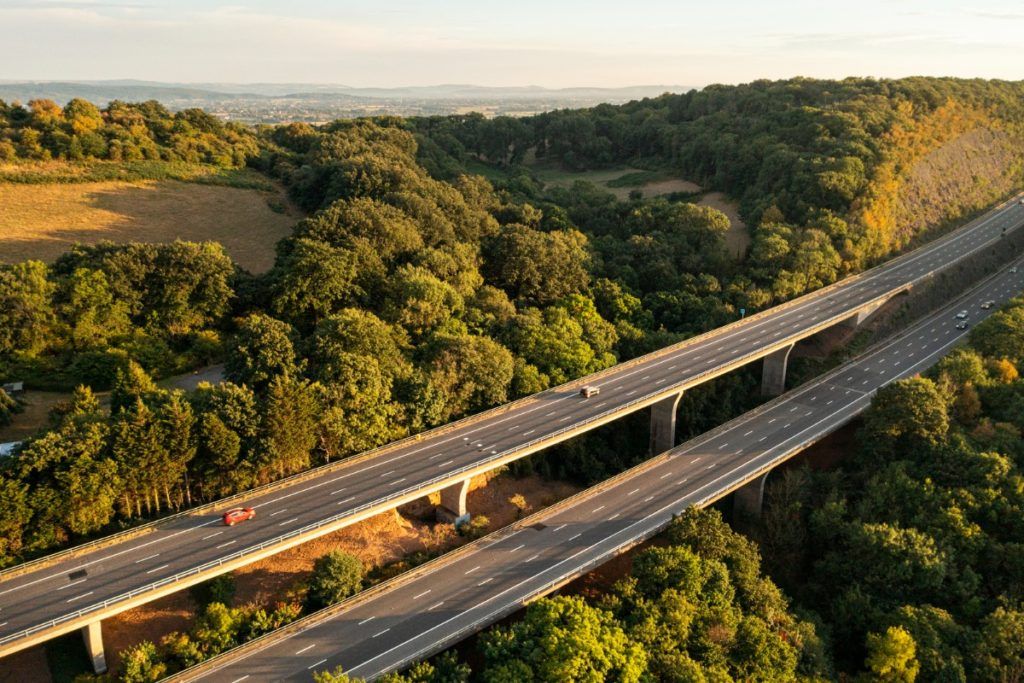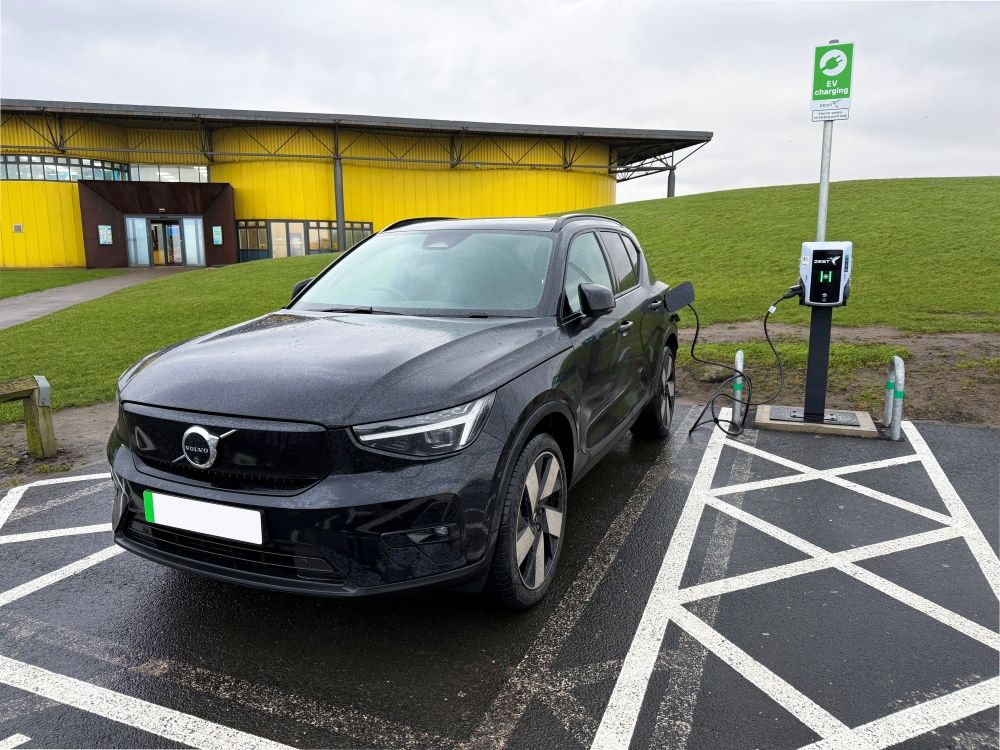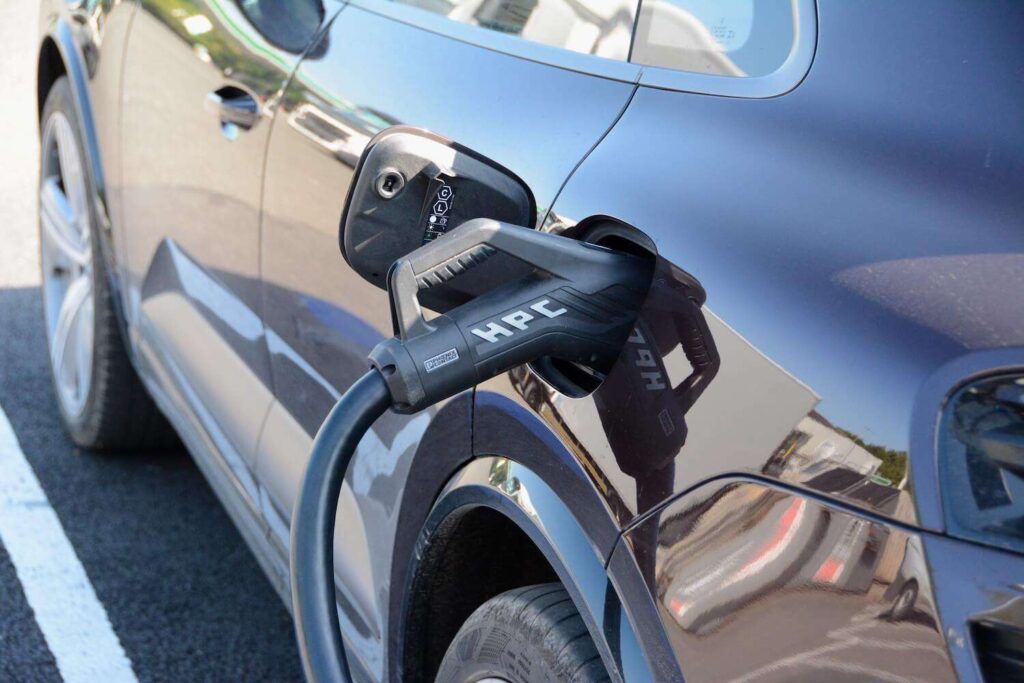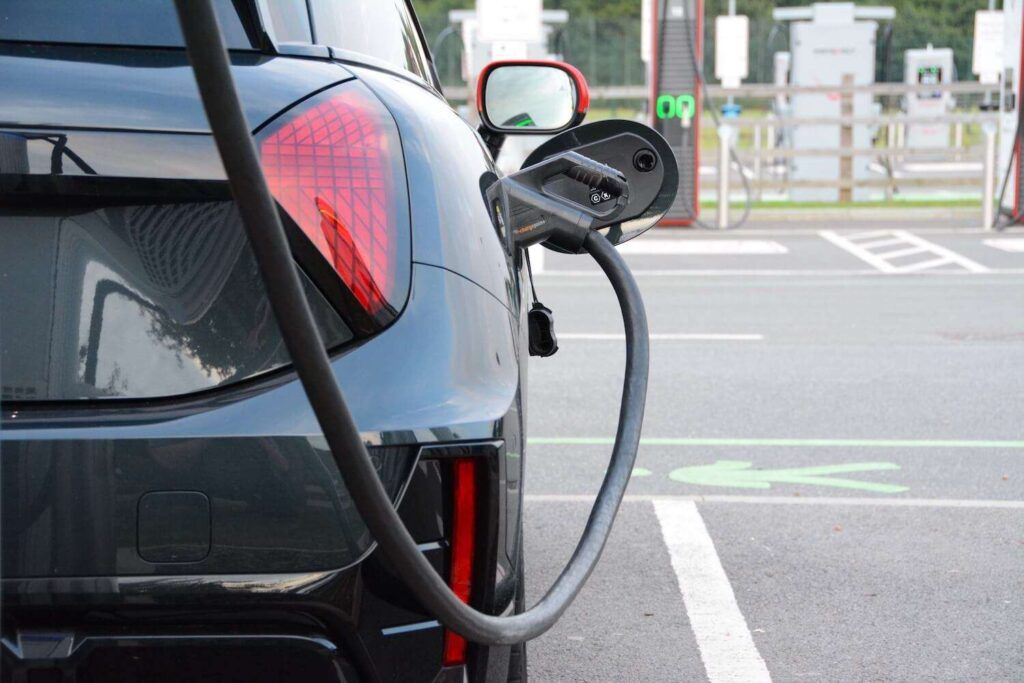New proposals for England’s motorways and major A-roads have been published by the government, including plans for rapid charging, net-zero highways and future technology.
The plans, outlined in the Strategic Road Network Initial Report for 2025-2030, sets out National Highways’ advice to government on its priorities, stating funding is needed to support the safe, efficient movement of people and goods.
A focus on ‘making the most’ of the existing network through maintenance and improvement has been made, including greater use of digital technologies to get ready for connected and autonomous vehicles – as well as promoting active travel. It outlines the challenges of congested roads, many build in the 1960s and 1970s, and which ‘now require extensive renewal’ to meet safety standards.
There will be an eight week consultation by the Department for Transport for the report, which was published alongside National Highways’ long-term strategic plan, Connecting the Country. This document sets out the company’s priorities for the network up to 2050, with demand for roads from zero-emission vehicles expected to remain strong as part of a seamlessly integrated transport system.
National Highways also published its new Environmental Sustainability Strategy, which sets out the company’s long-term vision to manage roads in a more sustainable way, ensuring the network can be used as a force for good.
Proposals outlined in the reports include plans for 2,500 rapid charge points for EVs by 2030, better lorry parking facilities, investment in small local schemes, and improving active travel through physically segregated link paths and cycle lanes alongside the highway. Additionally, there are plans for more three million trees to be planted to support biodiversity
Crucially, National Highways will also propose continuing to take sustained action to cut carbon emissions ‘at every opportunity’. By 2030, maintenance and construction emissions will be cut by up to 50% by minimising new works, using lean construction practices and carbon management approaches. The company’s own corporate emissions will also be cut to net zero by 2030 – without the use of purchased offsetting – through the transition to renewable energy, converting most road lighting to low-energy LEDs and other initiatives such as transitioning all traffic officer vehicles to electric power.
Richard Holden, Roads Minister, said: “Our roads are vital to our economy, and the plans set out today will help to enhance connectivity and boost growth, while protecting the environment. Working with National Highways, we are committed to delivering safe, reliable journeys and reducing congestion in a way supports our path to net zero.”
Nick Harris, National Highways’ Chief Executive, said: “While we strive to maintain safe and reliable journeys for the vehicles that rely on our network each day, we know that ever higher levels of social and environmental responsibility will, quite rightly, be required of us. This means we will need to find new and innovative ways to continue connecting the country by facilitating active travel and public transport, and also using digital technology to help customers make more informed decisions and managing our network more efficiently.”
Image courtesy of National Highways












